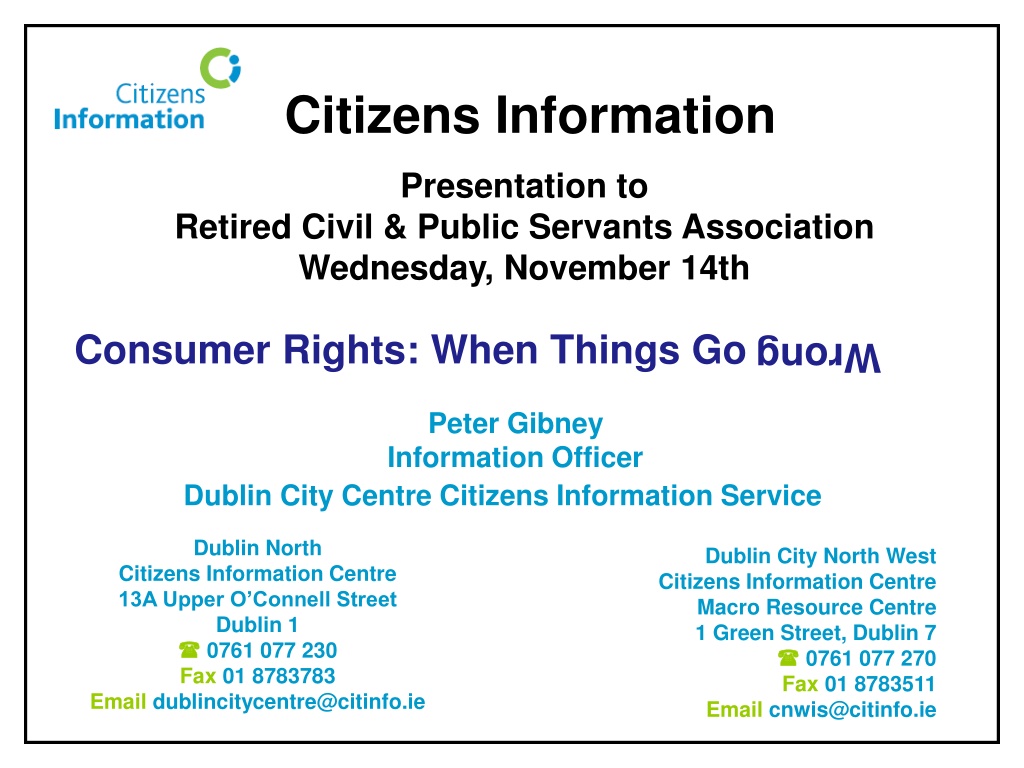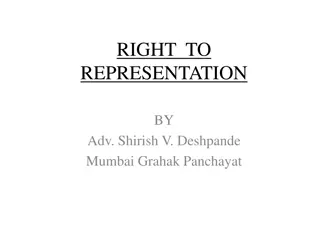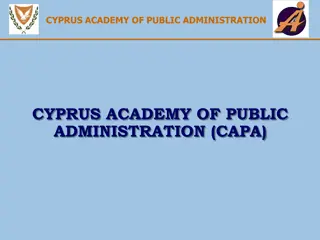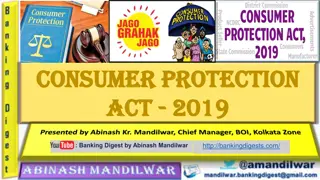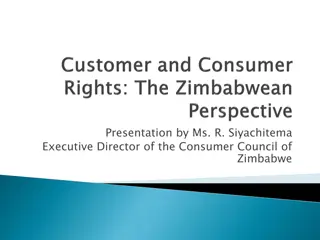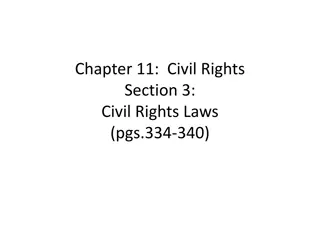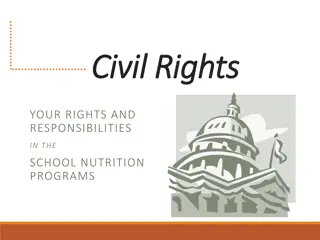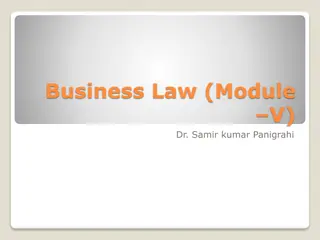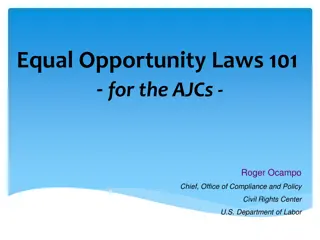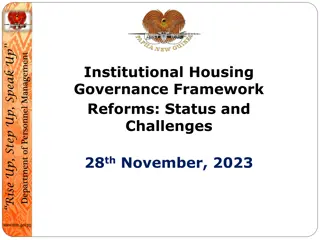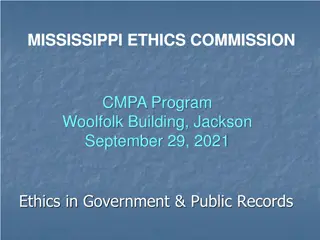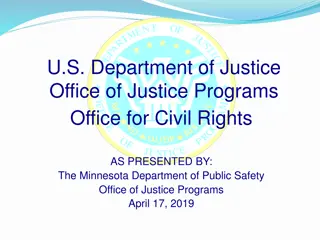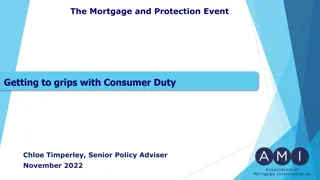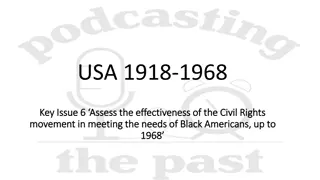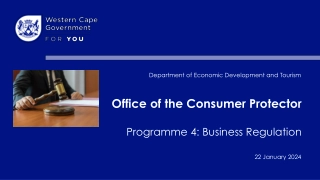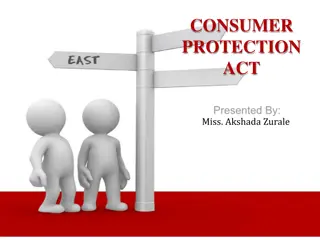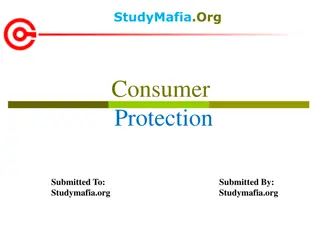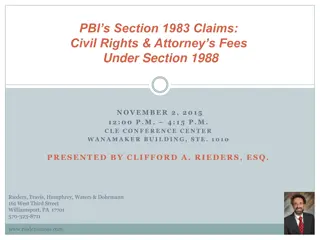Consumer Rights Presentation for Retired Civil & Public Servants Association
Presentation by Peter Gibney, Information Officer, Dublin City Centre Citizens Information Service, covering consumer rights, when things go wrong. The event provides free, impartial, and confidential information on various state services and entitlements, including social welfare, employment rights, health services, family matters, and more. Specialist services in Dublin City Centre CIS include legal advice, tax clinic, immigration clinic, and voluntary advice. Learn about who is considered a consumer in Irish law and the basics of contracts and agreements.
Download Presentation

Please find below an Image/Link to download the presentation.
The content on the website is provided AS IS for your information and personal use only. It may not be sold, licensed, or shared on other websites without obtaining consent from the author. Download presentation by click this link. If you encounter any issues during the download, it is possible that the publisher has removed the file from their server.
E N D
Presentation Transcript
Citizens Information Presentation to Retired Civil & Public Servants Association Wednesday, November 14th Consumer Rights: When Things Go Wrong Peter Gibney Information Officer Dublin City Centre Citizens Information Service Dublin North Dublin City North West Citizens Information Centre Macro Resource Centre 1 Green Street, Dublin 7 0761 077 270 Fax 01 8783511 Email cnwis@citinfo.ie Citizens Information Centre 13A Upper O Connell Street Dublin 1 0761 077 230 Fax 01 8783783 Email dublincitycentre@citinfo.ie
Free, impartial and confidential information, advice and advocacy on a wide range of state services and entitlements including: Social Welfare Employment Rights Health Services Family Matters Education Taxation Immigration
CIB Information Publications include: Getting back to work Guide to entitlements for people with disabilities Information for School Leavers Guide to entitlements for over sixties The EU and its citizens Information for those affected by bereavement
Specialist Services (in Dublin City Centre CIS) Free Legal Advice Centre (FLAC) (General, Family, Employment, Immigration) Chartered Accountants Voluntary Advice (CAVA) Tax Clinic Immigration Clinic Polish, Chinese Clinics IRIS (Irish Remote Interpreting Service)
Who is a consumer? Generally speaking a consumer is defined in Irish law as a natural person who buys goods or a service for personal use or consumption from someone whose business it is to sell goods or provide services. By law, you are not a consumer if you: Receive goods as a gift Buy goods for commercial purposes (i.e. you will be using the goods for commercial and not private use) Buy goods for private use that are normally used for business purposes Buy goods from an individual who is not in business (i.e. you buy a car from an individual whose normal business is not selling cars)
Contracts A contract is a formal agreement between two or more people that is enforceable by law. When you buy goods or services you enter into a contract with the seller. Contracts are made up of terms; some of which can be implied terms. Contracts may be written or oral. It is easier to know what the terms are in a written contract but an oral contract is also enforceable in law. Consumer contracts are protected by the Sale of Goods and Supply of Services Act, 1980.
Goods Goods must be of merchantable quality goods should be of reasonable quality taking into account what they are meant to do, their durability and their price Goods must be fit for their purpose they must do what they are reasonably expected to do Goods must be as described - the buyer must not be mislead into buying something by the description of goods or services given orally by a salesperson or an advertisement. When you buy goods in a sale you have the same rights as when you pay full price for the goods.
Contracts If you have a contract with a supplier of services you can expect that: The supplier has the necessary skill to provide the service The service will be provided with proper care and diligence The materials used will be sound and that goods supplied with the service will be of merchantable quality
If Things Go Wrong If you have a problem with an item that you have bought it is always the seller who should put things right. As a general rule, the seller can either repair or replace the item. Alternatively, they can refund the costs of the item or service to the consumer. There is no specification in law regarding which option is appropriate. The appropriate response will vary with the circumstances (ie, the nature of the fault and the product itself).
If you are not satisfied with the quality of goods or services you can: Return the goods to the supplier who sold it to you (you should not return the goods to the manufacturer) Act as soon as you can a delay can indicate that you have accepted faulty goods or services Do not attempt to repair the item yourself or give it to anyone else to repair it Make sure that you have a proof of purchase (a receipt, cheque stub, credit card statement or invoice)
You have no grounds for redress if: You were told about the defect before you bought the item (for example, if the goods were marked 'shopsoiled') You examined the item before you bought it and should have seen the defect You bought the item knowing that it wasn t fit for what you wanted it to do You broke or damaged the product You made a mistake when buying the item (for example, if you bought an item of clothing thinking it was black when it is actually navy) You change your mind
How To Make A Consumer Complaint The Fundamentals Know your rights Deal with the issue as soon as possible Find and keep all relevant documents Proof of purchase Start at the least formal level Appropriate complaints body
Financial Service Providers/Pensions Providers 3-step plan to making a complaint Step 1: Try to sort out your complaint with your provider first Talk to the person as soon as possible. Explain the problem and state the solution you want. Step 2: Complain formally to your provider Invoke formal complaint handling system in writing, set out the facts, include documentation, keep a copy. If financial service provider is regulated by the Central Bank, the provider must: Acknowledge receipt in writing within 5 days Let you know within 20 business days how your complain t is progressing Make a decision within 40 working days (Final Response) or let you know how much longer a decision will take with the option to go to the Financial Services Ombudsman 15
Step 3: Refer your complaint to the Financial Services and Pensions Ombudsman The FSPO: Decides if they can deal with your complaint Weighs up the evidence from you and the financial institution and recommends a solution May give compensation if you have suffered financial or other loss Decisions made are binding on both parties but can be appealed to the High Court 16
Consumer Rights In The EU If you purchase goods or services from another EU member state and they were advertised in your country, you are protected under consumer law of your home country. If you purchased goods or services from a representative of the business in your home country, national consumer law of your home country protects you. If you buy goods or services while you were visiting another EU member state the laws of the country in which you bought the items apply.
Cancelled flights Where your flight is cancelled, you are entitled to a choice of: Refund of the cost of your ticket within 7 days or Re-routing to your final destination at the earliest opportunity or Re-routing at a later date at your convenience, subject to availability of seats You may also be entitled to compensation.
Thank You Any complaints about the quality of this talk should be addressed to: pepe.silvia@citinfo.ie
